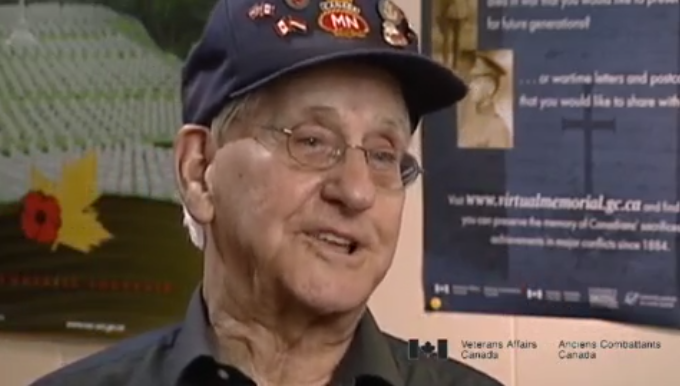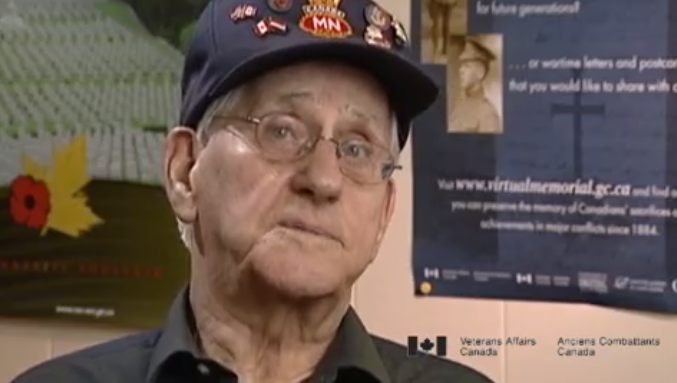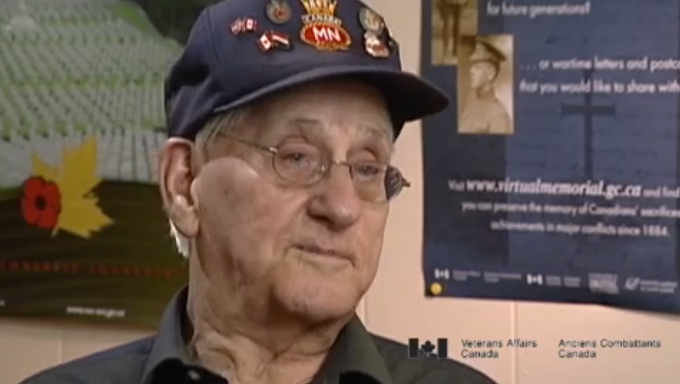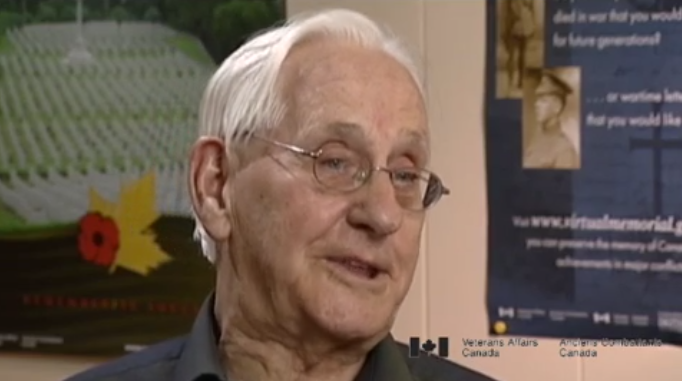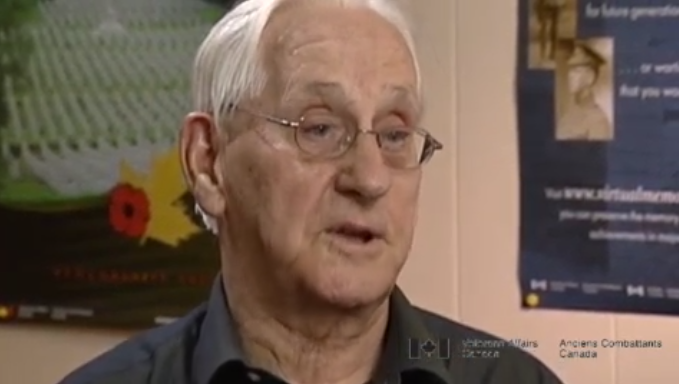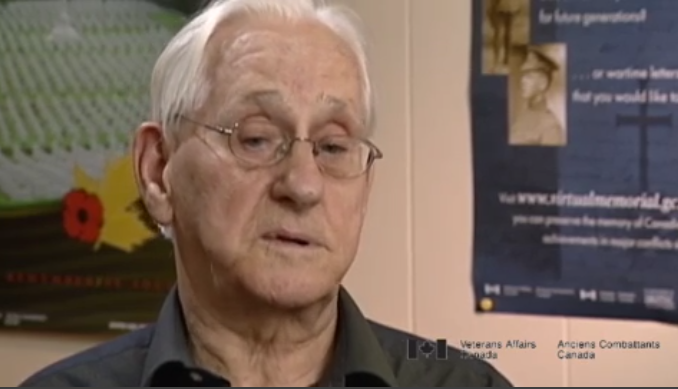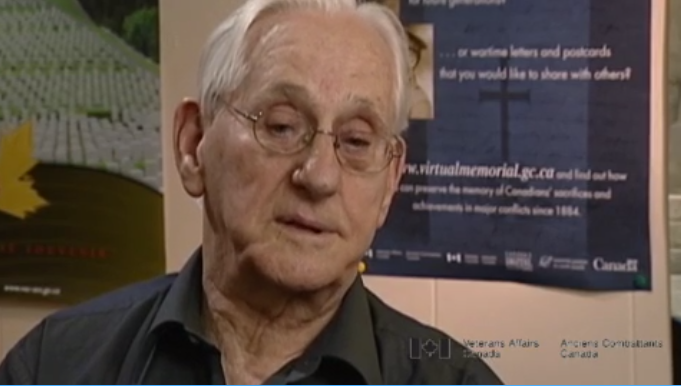And there were nobody allowed ashore
Heroes Remember
And there were nobody allowed ashore
Transcript
That night, we went ashore and got in a bar and talking about
and I heard a lot about Russia, you know. People coming back
from Russia, survivors and some with arms gone, and legs gone or
frozen, you know, things like that. And I said, “I hope to God
we’re not going there,” you know. But nobody knew - it was top
secret. Many lips sink ships, you know, loose lips sink ships.
Interviewer: And you wouldn’t ask?
No. I didn’t want to know, in a way, you know.
I didn’t want to know where we were going.
Because for me, I thought the less I knew, the better for
myself, you know. I wouldn’t worry about it. But,
unfortunately we were in the pub there drinking and singing
little songs, you know, and everything, all the war songs that
women did and dancing. Then, lo and behold, got in on the 27th
of March, 1942, we sailed into Loch Ewe, Scotland, on the coast.
There we waited for the other ships and we formed a convoy then
and from there then to Iceland. And we were in Iceland then for
a couple of weeks, three weeks I guess,
and there were nobody allowed ashore, you know.
We were bored on board. No shore leave.
Interviewer: Why was that?
Because of secrecy … a secret.
You weren’t allowed on account of spies. There were a lot of
spies in Iceland at that time, German spies. And they didn’t
want us to know where we were going or to tell anybody or
anything like that. So, this day this small boat came along the
stern of us. And it was going along and I took a carton of
cigarettes - I had three or four cartons of cigarettes - and I
brought down a carton of cigarettes and give it to them, you
know, “Take me to shore.” They took me to shore and I went into
the British pub there, you know, army place,
barracks, and they didn’t know who I was.
Interviewer: Were you all by yourself at this time?
All by myself, yeah. So I wanted to say I was ashore
in Iceland. So when I come down I was thinking, “Now, how my
God am I going to get back to the ship before anybody knows, the
captain knows.” So I got this old fella again, you know, and
got him to take me back to the ship and I shimmied up the line
on the stern of the ship. It wasn’t long before the, two hours
after, the captain calls me up and I said, “Now, what did he
want?” I went up and here I seen officers, there were uniforms
on them. My God, I thought they were going to hang me. You
know, he give me all hell for going ashore.
Interviewer: They found out?
Yeah, somebody told him, one of the crew members told
him. I said, “I wasn’t skipping out.” They said, “You know
this is a very serious offence,” he said. “To leave the ship,”
he said, “when you are under 24 hours notice to leave. We might
leave anytime.” And he said, “You’d be a deserter!” And he
said, “You know, I can shoot you for that?” “Oh my God,”
I said, “Captain, don’t do that.”
Description
Mr. Evans describes how he went ashore to Iceland despite orders because of the presence of German spies in Iceland. When he returned, he was severely reprimanded by his superiors.
George Harold Evans
George Harold Evans was born March 17, 1926 in St. John’s, Newfoundland. He was one of thirteen children. His father, a First World War Veteran, worked in the Newfoundland fishery and Mr. Evans fished with his father.
Meta Data
- Medium:
- Video
- Owner:
- Veterans Affairs Canada
- Duration:
- 3:20
- Person Interviewed:
- George Harold Evans
- War, Conflict or Mission:
- Second World War
- Branch:
- Merchant Navy
- Units/Ship:
- SS Envige
- Occupation:
- Messboy, Fireman/Stoker
Related Videos
- Date modified:



